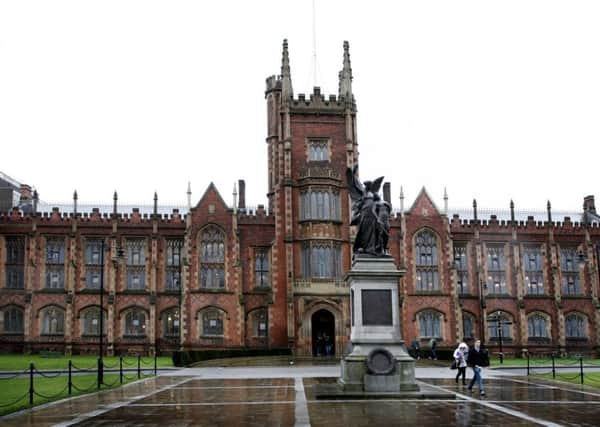Belfast researchers uncover new varieties of bowel cancer


The university has worked on how treatment for bowel cancer can be tailored to individuals’ specific cases, as opposed to just giving a general course of chemotherapy, and have uncovered different “subtypes” of the cancer.
Professor Mark Lawler, chair in translational genomics, said: “Currently patients with colorectal (bowel) cancer are offered chemotherapy treatment.
Advertisement
Hide AdAdvertisement
Hide Ad“While this treatment may be successful for some patients, for others it will have no effect on fighting the cancer, though the patients may suffer debilitating side effects such as nerve damage that can result in a loss of sensation or movement in a part of the body. A ‘one size fits all’ approach isn’t a viable option if we are to effectively tackle this disease.”
Researchers at Queen’s, in collaboration with the University of Oxford and the University of Leeds have made a significant advance.
Dr Philip Dunne, Senior Research Fellow at Queen’s said: “Through analysing the molecular and genetic data generated from patient tissue samples, we have discovered that there are different subtypes of bowel cancer.
“This research unequivocally identifies robust gene signatures that can be used to inform patient management.
“It will allow us to identify particular gene signatures that indicate sensitivity or resistance to specific therapies. Thus, we can tailor treatment to the individual patient.”